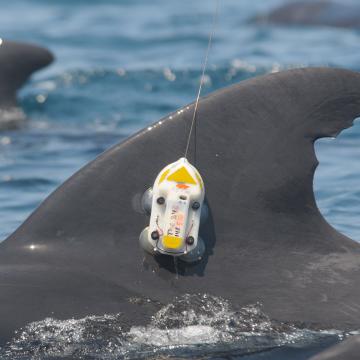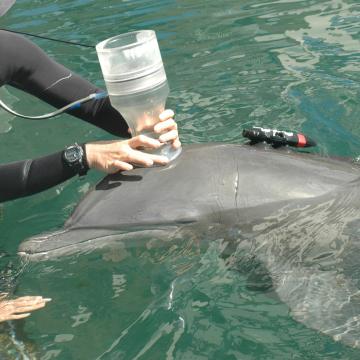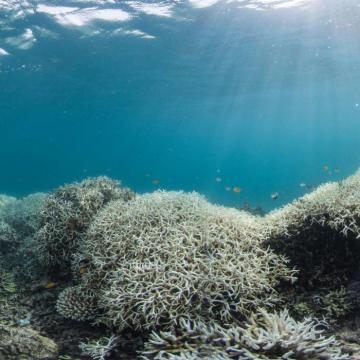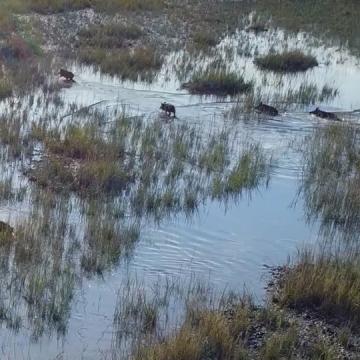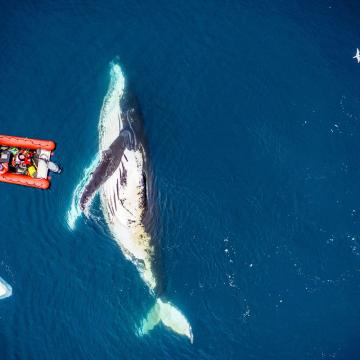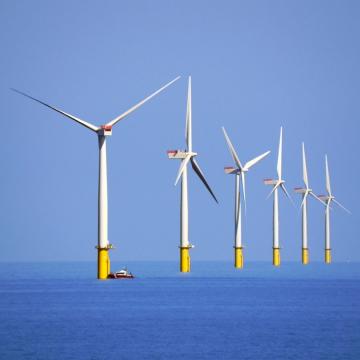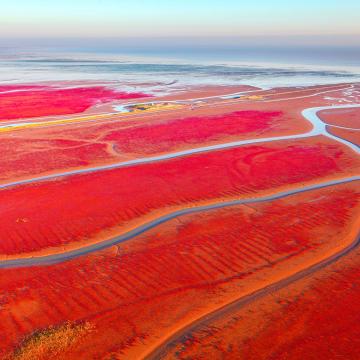-
NewsClimate change and rapid economic development have placed increased pressures on many coastal communities in recent years. Now, a new international study shows there is also a third force—the unintended consequences of conservation measures enacted with little or no consideration of local rights and needs—that can compound the harm. The study’s authors call the combined effects of these three forces a “triple exposure.”
-
NewsNew GIS-enabled analysis by a Duke University researcher maps what the far-reaching impacts to international trade and shipping could be if any of the world’s 11 busiest marine chokepoints, or shipping straits, are closed due to politics, piracy, vessel accidents, or other causes. Knowing in advance what to expect will help businesses and governments better navigate unexpected closures and reduce disruptions to international trade and global supply chains.
-
NewsSand mining happens on every inhabited continent and at nearly every conceivable scale. Some of it is legal; much of it is not. A new book from Duke University Press, “Vanishing Sands: Losing Beaches to Mining,” casts light on the shadowy world of sand mining through case studies that illuminate its disastrous impacts and a concluding chapter that proposes common-sense solutions.
-
NewsRewetting and restoring 250,000 acres of southern pocosin peatlands that had been drained for farming but now lie fallow could prevent 4.3 million tons of climate-warming carbon dioxide, now stored in their soils, from oxidizing and escaping back into Earth’s atmosphere each year, a Duke University study shows. That amount equals 2.4% of the total annual reductions in CO2 emissions needed for the United States to be carbon neutral by 2050.
-
NewsA Duke University-led research team has used acoustic tags to eavesdrop on pilot whales as they forage in waters off Cape Hatteras, N.C. Vocalizations and echoes recorded by the tags reveals the whales alter their hunting behaviors based on the local environment, a trait that may contribute to the species’ success in adapting to shifting prey distributions and other changes now occurring in the world’s oceans.
-
NewsMost North Atlantic right whales that are severely injured in fishing gear entanglements die within three years, a study by the New England Aquarium and Duke University finds. Severely injured whales were up to eight times more likely to die than those with minor injuries, and only 44% of males and 33% of females with severe injuries survived longer than 36 months. Females that did survive had low birth rates and longer intervals between calving.
-
NewsHuman activities such as marsh draining for agriculture and logging are increasingly eating away at saltwater and freshwater wetlands that cover only 1% of Earth’s surface but store more than 20% of all the climate-warming carbon dioxide absorbed by ecosystems worldwide. A new study published May 5 in Science by a team of Dutch, American and German scientists shows that it’s not too late to reverse the losses.
-
NewsHow much energy does a dolphin use to swim? Fundamental understanding about their physiology and ecology may boost odds of survival.
-
NewsA new analysis reveals that the majority of the ocean’s surface has experienced extreme heat regularly since 2014.
-
NewsNew research finds nearly 75% of the seafood exported to China is processed there and ‘re-exported’ to global markets as Chinese products, making it hard to track its sustainability and verify it’s labeled accurately, but also gutting the economies of small fishing communities worldwide that can no longer compete.
-
NewsCoastal marshes that have been invaded by feral hogs recover from disturbances up to three times slower than non-invaded marshes and are far less resilient to sea-level rise, extreme drought and other impacts of climate change.
-
NewsUsing drones and high-tech tracking devices, scientists have discovered baleen whales eat up to three times more prey than previously thought and play a critical but perhaps underappreciated role in fueling the ocean’s food web and promoting biodiversity.
-
NewsDuke University has received a $7.5 million grant from the U.S. Department of Energy to assess the risks offshore wind energy development along the East Coast may pose to birds, bats and marine mammals.
-
NewsA new international study suggests that invasive species, such as the cordgrass that is swamping native plants in the Red Marshes, pose a much greater threat to protected areas, even well managed ones, than was previously recognized.
-
NewsClouds of smoke and ash from wildfires that ravaged Australia in 2019 and 2020 triggered widespread algal blooms in the Southern Ocean thousands of miles downwind to the east, a new Duke University-led study by an international team of scientists finds.




